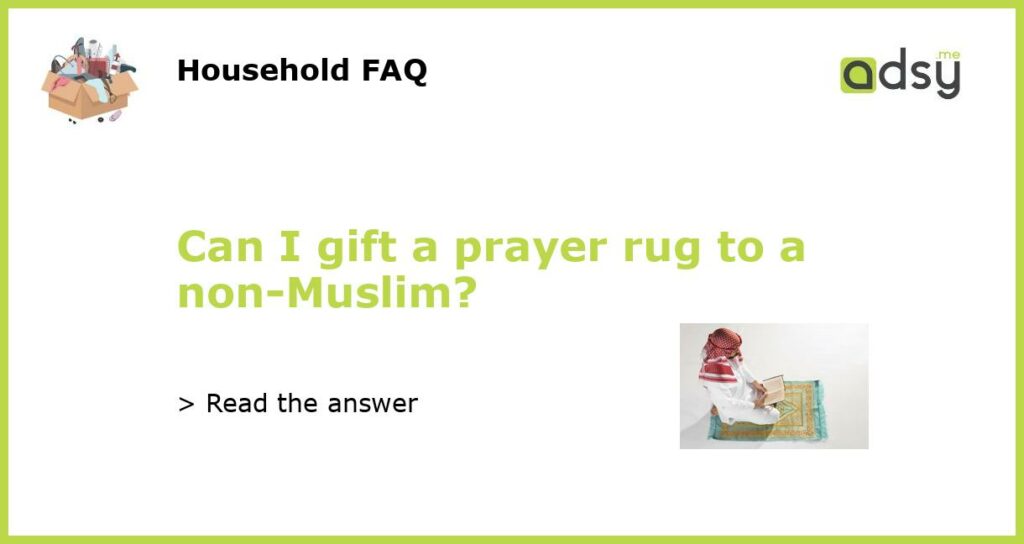Can I gift a prayer rug to a non-Muslim?
Prayer rugs hold a significant place in the practice of Islam. They are used by Muslims to create a dedicated and clean space for prayer, facing towards Mecca. Prayer rugs come in various designs and are considered sacred by Muslims. However, gifting a prayer rug to a non-Muslim raises the question of appropriateness and cultural sensitivity. While there is no rule explicitly prohibiting the gifting of a prayer rug to a non-Muslim, there are a few important factors to consider.
1. Understanding the Significance of a Prayer Rug:
Before deciding to gift a prayer rug to a non-Muslim, it is crucial to understand the significance and sacredness associated with it. A prayer rug is not simply a decorative item but rather a religious tool used for worship. Muslims believe that the rug symbolizes a designated space to connect with Allah and perform prayers. Therefore, it is important to respect and honor the religious significance attached to a prayer rug.
2. Cultural Sensitivity:
When gifting any item that holds religious or cultural significance, it is crucial to approach the situation with sensitivity and respect. Understand that a prayer rug is deeply connected to the Islamic faith and may not hold the same value or meaning for someone who does not practice Islam. It is important to consider the recipient’s cultural background and personal beliefs before deciding to gift a prayer rug.
3. Intent and Context:
The intent and context of the gift play a significant role in determining its appropriateness. If the intention is to educate and promote cross-cultural understanding, gifting a prayer rug can be seen as a positive gesture. However, it is essential to approach the recipient respectfully and explain the significance of the gift, emphasizing that it is a religious item used for prayer. Avoid giving a prayer rug as a mere decoration or novelty item, as this may trivialize its importance.
4. Personal Relationship and Communication:
The nature of the personal relationship and level of communication with the recipient are crucial factors to consider before gifting a prayer rug. If you have an open channel of communication and can discuss cultural and religious matters comfortably, it may be appropriate to discuss the gift in advance. Use this opportunity to explain the significance of the prayer rug and ensure that the recipient is comfortable receiving it.
5. Alternative Gift Ideas:
If you are unsure about the appropriateness of gifting a prayer rug, there are alternative gifts that can still promote cultural understanding and appreciation. Opt for items such as books on Islamic art and culture, calligraphy, or traditional handicrafts that are not directly connected to religious practices but still showcase the rich cultural heritage of Islam. This way, you can foster understanding and respect without potentially causing any discomfort.
In conclusion, gifting a prayer rug to a non-Muslim is a decision that should be approached with thoughtfulness, cultural sensitivity, and respect for religious beliefs. While there is no strict rule against such a gift, it is essential to understand the significance of a prayer rug and to communicate openly with the recipient. By considering these factors, you can navigate cultural sensitivities and promote mutual understanding while being respectful of religious practices.






